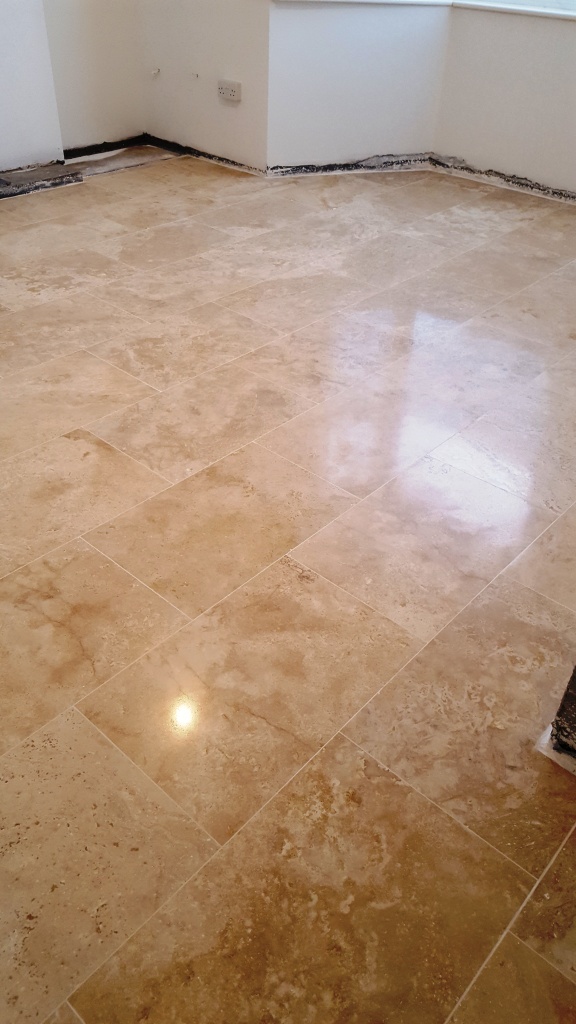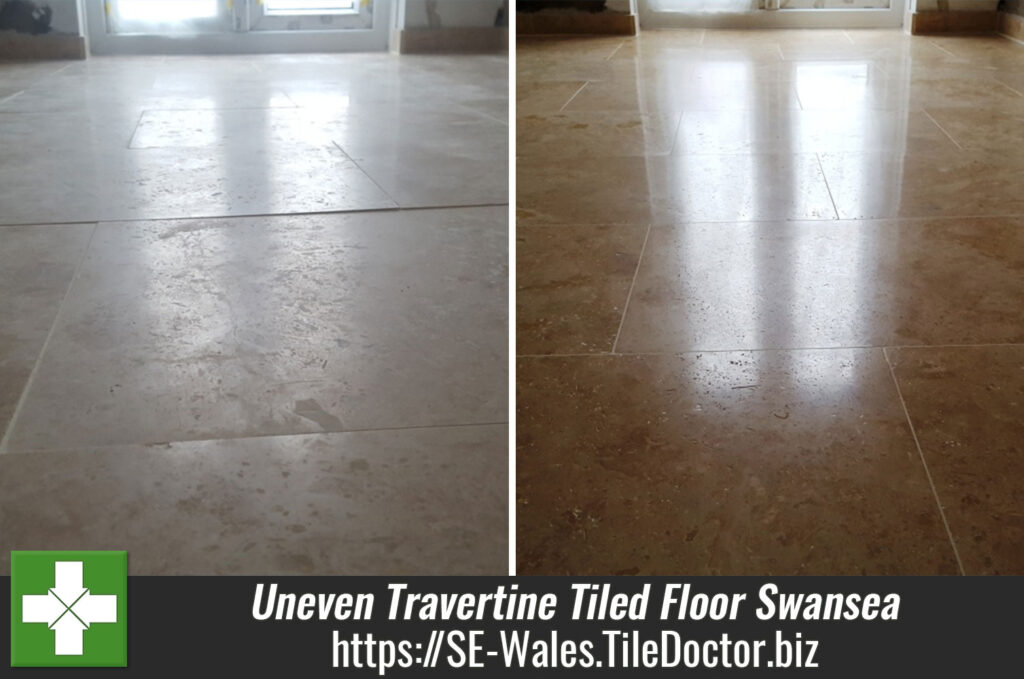The customer, who lives in Swansea, the second largest city in Wales after Cardiff, had been searching for a company to rectify the problems with his Travertine tiled floor for a few months with no luck. Fortunately, he discovered Tile Doctor online and as their local agent I was asked to assess the problems first hand.


Levelling an Uneven Travertine Tiled Floor
I used a set of Tile Doctor milling pads, starting with the 50 grit Extra Coarse pad to remove the lippage throughout the whole floor. It was a large area and with 2-3mm to grind off the tile it took four days nearly three pads to complete.


Restoring the Polish on a Travertine Tiled Floor
After removing the tile lippage, I knew that the floor would be a lot easier to polish using our set of four Tile Doctor burnishing pads, which would do the job of restoring the desired polish. I started with the Coarse 400 grit pad and worked my way through the system of burnishing pads using a little water to help lubricate and rinsing away the slurry between each pad. The pads were applied in sequence from Medium, Fine and then Very Fine pads to achieve a fantastic polished finish.
Next, I needed to fill a lot of cavities remaining in the stone. I did this filling after the burnishing to avoid the filler coming loose during the work in progress.
Sealing a Travertine Tiled Floor
The final step in the restoration process was to seal the floor using our impregnating sealer, known as Tile Doctor Colour Grow. I highly recommend this product for stone as it not only does add durable protection by occupying the pores in the stone it also enhances it’s natural colours.
Finally, I removed any surplus sealer with a cloth and left the floor to dry for another hour, before using the Very Fine pad to refine the polish and ensure that no smears were present.




For the regular cleaning of polished stone Showers we recommend using a specialist cleaning product such as Tile Doctor Stone Soap. If you wish to use something else the read the label in detail first, most supermarket tile cleaners are only suitable for glazed tiles as they are acidic and this will erode and reduce the life of the sealer over time.